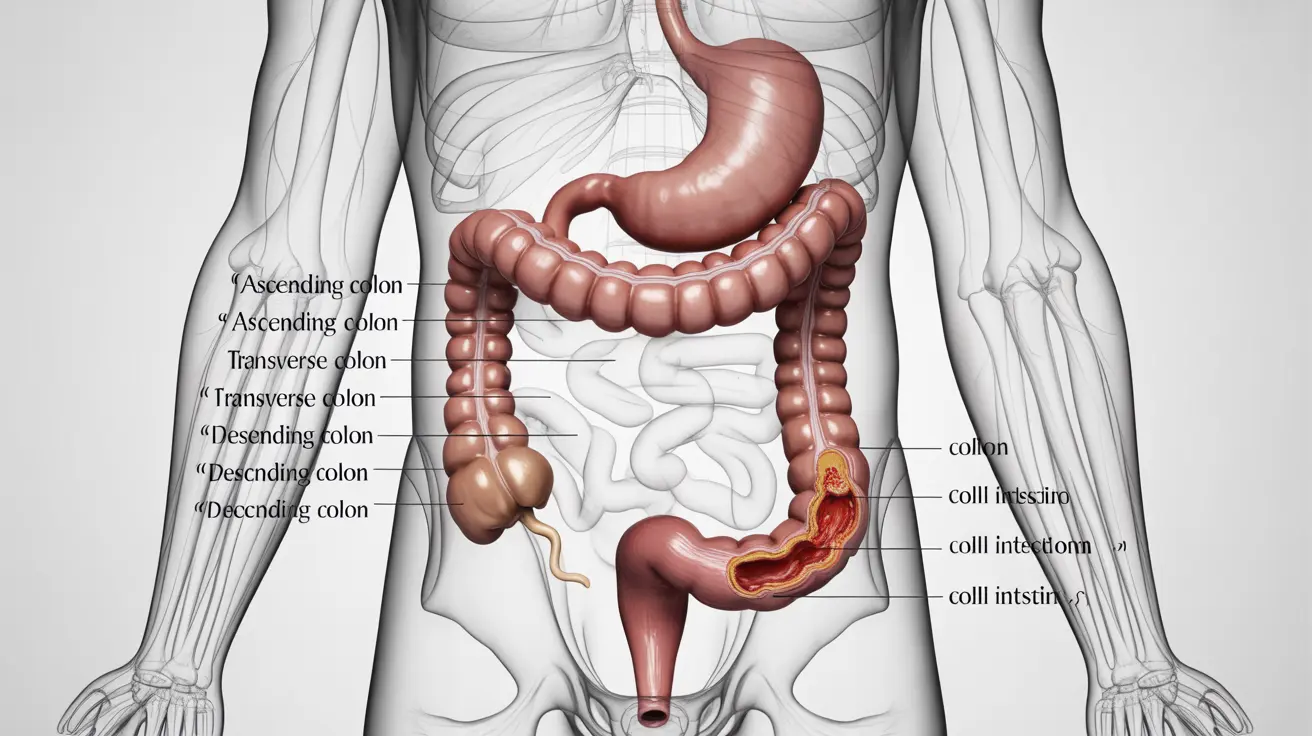Finding bright red blood in your stool can be alarming, especially when there's no accompanying pain. While this symptom often has benign causes, understanding its potential origins and knowing when to seek medical attention is crucial for your health and peace of mind.
This comprehensive guide explores the common causes of painless rectal bleeding, treatment options, and important warning signs that indicate the need for immediate medical evaluation.
Common Causes of Painless Rectal Bleeding
Several conditions can lead to bright red blood in stool without pain:
Hemorrhoids
Internal or external hemorrhoids are the most frequent cause of painless rectal bleeding. These swollen blood vessels in the anal area often produce bright red blood, typically noticed on toilet paper or in the bowl. While hemorrhoids can sometimes cause discomfort, they frequently bleed without pain.
Anal Fissures
These small tears in the anal tissue commonly cause bright red bleeding during bowel movements. While fissures can be painful, some people experience bleeding without significant discomfort, especially if the tears are small.
Diverticular Disease
Small pouches (diverticula) that form in the colon wall can occasionally bleed, producing bright red blood in stool. This bleeding is typically painless and may occur suddenly.
When to Seek Medical Attention
While some causes of rectal bleeding are relatively harmless, certain situations warrant immediate medical evaluation:
- Heavy or continuous bleeding
- Blood clots in stool
- Accompanying symptoms like weakness or dizziness
- Changes in bowel habits
- Unexplained weight loss
- Family history of colorectal cancer
Treatment Options for Common Causes
Conservative Management
Many cases of painless rectal bleeding can be managed with lifestyle modifications and over-the-counter treatments:
- Increasing fiber intake
- Maintaining proper hydration
- Using sitz baths
- Applying over-the-counter hemorrhoid treatments
- Regular exercise
Medical Interventions
When conservative measures aren't sufficient, medical treatments may include:
- Prescription medications
- Rubber band ligation for hemorrhoids
- Minor surgical procedures
- Colonoscopy for diagnosis and treatment
Prevention Strategies
Several lifestyle changes can help prevent episodes of painless rectal bleeding:
- Maintaining a high-fiber diet
- Avoiding straining during bowel movements
- Regular exercise
- Proper toilet habits
- Staying well-hydrated
Frequently Asked Questions
What are the most common causes of painless bright red blood in stool?
The most common causes include hemorrhoids, anal fissures, and diverticular disease. Hemorrhoids are the leading cause, followed by anal fissures. These conditions often produce bright red blood that's visible on toilet paper or in the toilet bowl.
When should I see a doctor if I notice bright red blood in my stool but no pain?
Seek immediate medical attention if bleeding is heavy, persistent, or accompanied by symptoms like weakness, dizziness, or changes in bowel habits. Also consult a doctor if you're over 40, have a family history of colorectal cancer, or experience unexplained weight loss.
How are hemorrhoids and anal fissures treated if they cause bright red bleeding without pain?
Treatment typically begins with conservative measures like increasing fiber intake, using sitz baths, and applying over-the-counter treatments. If these methods aren't effective, medical interventions such as rubber band ligation or minor surgery may be necessary.
Can painless bright red blood in stool be a sign of colon polyps or cancer?
Yes, while less common than hemorrhoids or fissures, painless rectal bleeding can be a sign of colon polyps or colorectal cancer. This is why it's important to have persistent or unexplained bleeding evaluated by a healthcare provider, especially if you're over 40 or have risk factors.
What lifestyle changes can help prevent painless bright red bleeding during bowel movements?
Key preventive measures include maintaining a high-fiber diet, staying well-hydrated, exercising regularly, avoiding straining during bowel movements, and practicing good toilet habits. These changes can help prevent hemorrhoids, fissures, and other causes of rectal bleeding.




